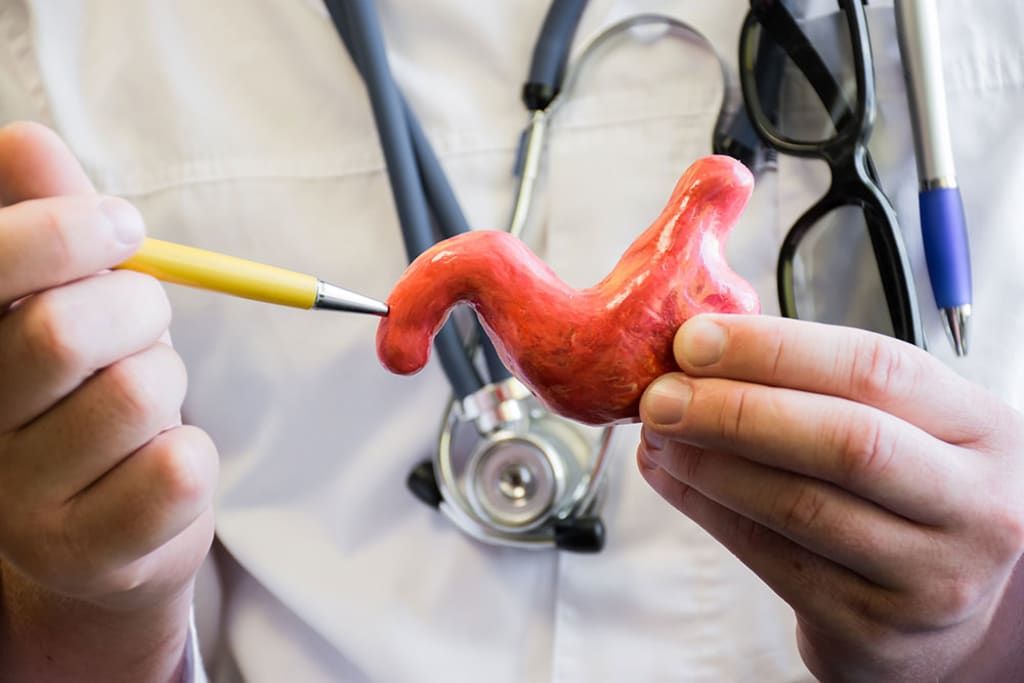Gastroenterological Diseases
Causes, Symptoms, and Treatment

Introduction
Gastroenterological diseases refer to a group of disorders that affect the digestive system, including the esophagus, stomach, small intestine, large intestine, rectum, and anus. These diseases can range from mild to severe, with some potentially life-threatening. Gastrointestinal diseases can cause symptoms such as abdominal pain, bloating, nausea, vomiting, diarrhea, and constipation, which can significantly impact an individual's quality of life. In this article, we will discuss some of the most common gastroenterological diseases, their causes, symptoms, and treatment options.
Gastroesophageal Reflux Disease (GERD)
GERD is a chronic digestive disorder that occurs when stomach acid or bile flows back into the esophagus, causing inflammation and irritation. The common symptoms of GERD are heartburn, chest pain, difficulty swallowing, and regurgitation of food or sour liquid. Causes of GERD can be due to weakened lower esophageal sphincter, hiatal hernia, obesity, smoking, and pregnancy.
Treatment for GERD may include lifestyle modifications like avoiding triggers such as spicy food, caffeine, and alcohol, taking over-the-counter antacids, and prescription medications like proton pump inhibitors or H2 blockers. In some cases, surgery may be required to repair the esophageal sphincter.
Irritable Bowel Syndrome (IBS)
IBS is a chronic gastrointestinal disorder that affects the large intestine or colon. The symptoms of IBS include abdominal pain, bloating, diarrhea, constipation, and changes in bowel habits. The exact cause of IBS is unknown, but triggers can include stress, certain foods, hormones, and medications.
Treatment for IBS may include lifestyle changes like stress reduction, dietary changes like a low FODMAP diet, and medications like antispasmodics, laxatives, or probiotics. There is no cure for IBS, but managing the symptoms can significantly improve an individual's quality of life.
Inflammatory Bowel Disease (IBD)
IBD is a chronic inflammatory disorder of the gastrointestinal tract, which includes Crohn's disease and ulcerative colitis. The symptoms of IBD include abdominal pain, diarrhea, rectal bleeding, weight loss, and fatigue. The exact cause of IBD is unknown, but it is thought to be an autoimmune disorder.
Treatment for IBD may include medications like corticosteroids, immunosuppressants, biologics, and lifestyle changes like dietary modifications. In severe cases, surgery may be required to remove damaged portions of the intestine.
Celiac Disease
Celiac disease is an autoimmune disorder triggered by the ingestion of gluten, which is found in wheat, barley, and rye. The symptoms of celiac disease can include abdominal pain, bloating, diarrhea, constipation, and weight loss. In some cases, there may be no symptoms at all.
The treatment for celiac disease is a strict gluten-free diet, which means avoiding all foods that contain gluten. Failure to follow a gluten-free diet can lead to significant complications such as malnutrition, anemia, osteoporosis, and an increased risk of certain cancers.
Peptic Ulcer Disease (PUD)
PUD is a sore that develops on the lining of the stomach, small intestine, or esophagus due to damage from stomach acid. The common symptoms of PUD are abdominal pain, bloating, nausea, and vomiting. Causes of PUD can be due to H. pylori bacterial infection, prolonged use of NSAIDs, smoking, and alcohol.
Treatment for PUD may include antibiotics to kill the H. pylori bacteria, acid-blocking medications, and lifestyle modifications. In severe cases, surgery may be required to remove the damaged tissue.
Hepatitis
Hepatitis is a condition in which the liver becomes inflamed, resulting in a range of symptoms from mild to severe. The three most common types of hepatitis are hepatitis A, B, and C, each caused by a different virus.
Hepatitis A is usually spread through contaminated food or water, while hepatitis B and C are spread through blood or body fluids. Symptoms of hepatitis can include fatigue, nausea, vomiting, abdominal pain, and jaundice (yellowing of the skin and eyes).
Treatment for hepatitis depends on the type and severity of the infection. Hepatitis A usually resolves on its own without treatment, while hepatitis B and C may require antiviral medications. In some cases, hepatitis can lead to liver damage and cirrhosis, which can be life-threatening.
Diverticular Disease
Diverticular disease refers to the presence of small, bulging pouches (diverticula) in the lining of the large intestine. Diverticulosis refers to the presence of diverticula without inflammation, while diverticulitis occurs when the diverticula become inflamed or infected. Symptoms of diverticular disease include abdominal pain, bloating, constipation, and diarrhea.
Treatment for diverticulosis may include dietary changes like increasing fiber intake, while diverticulitis may require antibiotics and in severe cases, surgery to remove the affected portion of the colon.
Conclusion
In conclusion, gastroenterological diseases can have a significant impact on an individual's quality of life, ranging from mild discomfort to severe complications. It is essential to understand the causes, symptoms, and treatment options for these disorders to manage symptoms and prevent complications. Maintaining a healthy lifestyle, including a balanced diet, regular exercise, and stress reduction, can help prevent many gastroenterological diseases. If you experience persistent gastrointestinal symptoms, it is essential to consult with your healthcare provider to determine the underlying cause and appropriate treatment.
About the Creator
Ferid Xelefov
i am a doctor






Comments
There are no comments for this story
Be the first to respond and start the conversation.